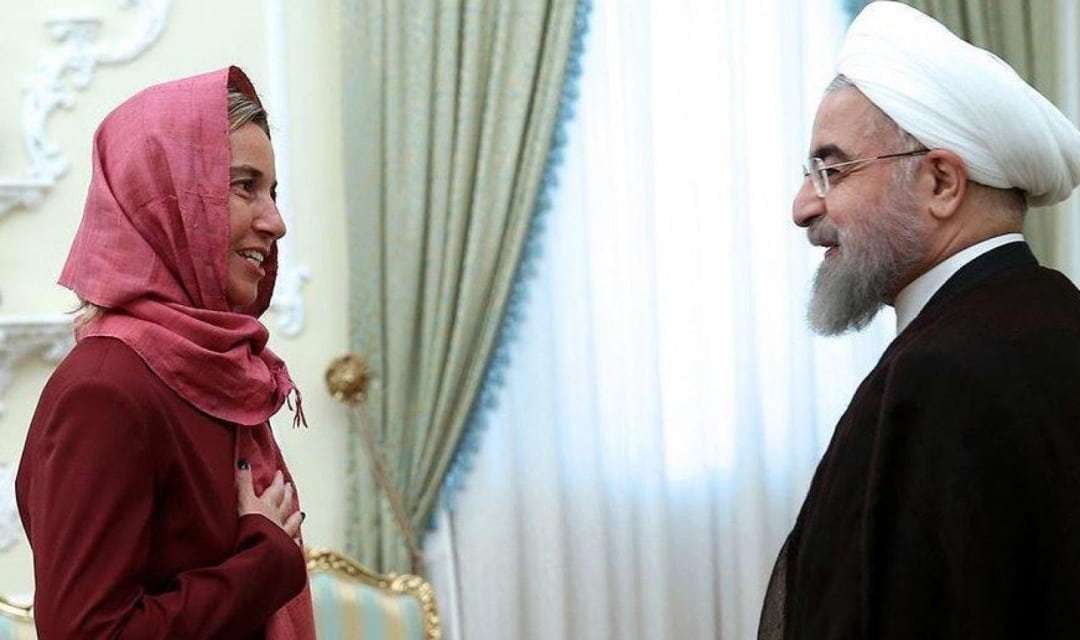Iran President Hassan Rouhani greets European Union’s Federica Mogherini, Tehran, July 28, 2015
The European Union will activate a Special Purpose Vehicle with Iran, bypassing US sanctions imposed after Donald Trump withdrew the Americans from the 2015 nuclear deal between Tehran and the 5+1 Powers.
The SPV provides for non-dollar trade in Iranian oil and other goods and commodities.
However, according to “informed sources”, the EU indicated that it will link the activation to expressions of concern about Iran’s ballistic missile program and its role in regional tensions.
The European Council is expected to ratify the arrangement on Monday. It will reaffirm support of the nuclear deal and express regret about the US sanctions, escalated on November 5 with measures against Iran’s energy and financial sectors.
In September, the SPV was approved in principle between Iranian Foreign Minister Mohammad Javad Zarif and the EU’s foreign policy head Federica Mogherini. However, implementation stalled over which Euorpoean country would host the SPV, given the possibility of US retaliatory sanctions.
Earlier this month, Iranian officials signalled that they had given up hope of activation, denting a key element of the Rouhani Government’s approach to salvage an Iranian economy in trouble.
But in recent days, European statesmen such as French Foreign Minister Jean-Yves Le Drian said the SPV could be soon put in place.
Iran Daily, Jan 9: Tehran Gives Up on Europe for Economic Salvation
In addition to seeking Iran assurances over missiles and the region — possibly to stave off US condemnation — the European Council will press Tehran to join the Financial Action Task Force and an international convention against finance of terrorism and money laundering.
The Rouhani Government has sought the regime’s approval of accession, but hardliners have objected that this could affect Iran’s ties with groups such as Lebanon’s Hezbollah and Palestine’s Islamic Jihad.
Iran’s Expediency Council, which arbitrates disputes between different branches of the regime, is reviewing the proposal.

